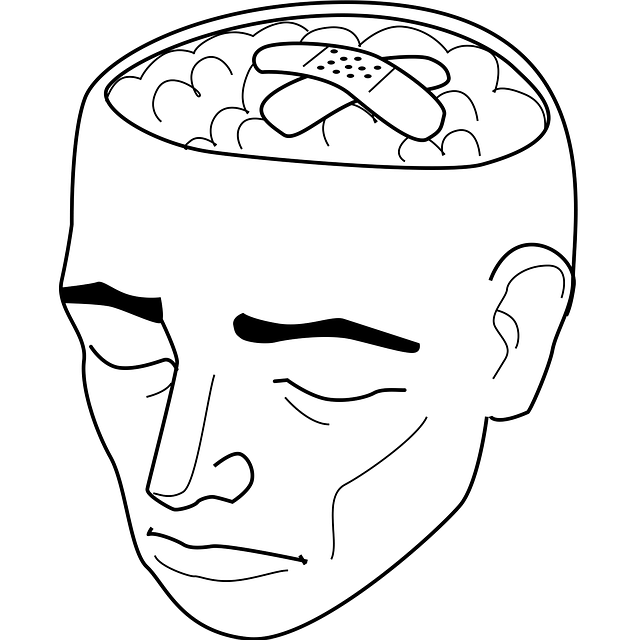Mental health professionals treating elders face unique challenges due to sensitive issues like trauma, loss, and cognitive impairments. To mitigate risks, they must adapt their approaches, incorporating strategies such as play therapy for non-verbal communication. Risk management plans, including secure data practices and age-appropriate activities, enhance safety. Play therapy, culturally sensitive and empowering, fosters emotional well-being. Social skills training reduces conflicts while burnout prevention ensures sustained services. Continuous monitoring, emotional intelligence, and tailored support ensure effective play therapy throughout the aging process, addressing cognitive decline and social isolation.
Mental health professionals working with elders face unique risks, from potential patient vulnerability to complex ethical dilemmas. This article guides practitioners through essential risk management planning, focusing on specific challenges in elderly care. We explore innovative strategies like integrating play therapy techniques for risk mitigation, developing comprehensive plans, implementing safety protocols, and continually adapting practices for optimal patient care. By adopting these measures, professionals can enhance their ability to provide effective, safe, and compassionate therapy for elders.
- Understanding Risks Specific to Mental Health Practice with Elders
- Integrating Play Therapy Techniques for Risk Mitigation
- Developing a Comprehensive Risk Management Plan
- Implementing Safety Protocols in Clinical Settings
- Continuous Monitoring and Adaptation for Optimal Patient Care
Understanding Risks Specific to Mental Health Practice with Elders

Mental health professionals working with elders face unique risks that demand specialized attention. The nature of therapy for elders often involves delicate subjects like trauma, loss, and chronic illness, which can trigger complex emotions. Additionally, elders may have reduced mobility or cognitive impairments, requiring adaptations in therapeutic approaches to ensure their comfort and safety during sessions. Understanding these specific risks is crucial. Professionals must be adept at assessing and addressing the unique needs of this demographic, incorporating strategies such as play therapy for those with diminished verbal communication skills.
Stress reduction methods grounded in mind over matter principles can be particularly effective in mitigating potential risks. By fostering a sense of calm and resilience, these practices empower elders to better manage the emotional challenges they face. Moreover, mental health policy analysis and advocacy are essential tools for addressing systemic issues that may impact the care provided to older adults, ensuring access to appropriate resources and services tailored to their needs.
Integrating Play Therapy Techniques for Risk Mitigation

Integrating Play Therapy Techniques for Risk Mitigation offers a unique and effective approach to enhancing risk management plans for mental health professionals working with elders. Beyond traditional therapy methods, play therapy encourages non-verbal expression, fostering emotional well-being promotion techniques that can be especially beneficial for elderly clients who may face challenges in verbalizing their feelings. This method leverages the power of play as a therapeutic tool to help individuals process trauma, resolve conflicts, and develop coping strategies, thereby mitigating potential risks associated with mental health issues in later life.
By incorporating play therapy into risk management plans, healthcare provider cultural competency training becomes more robust. Play therapy is culturally sensitive, allowing professionals to adapt their approaches based on individual preferences and backgrounds. This adaptability promotes a deeper connection between therapists and clients, enhancing the overall effectiveness of treatment. Incorporating these techniques also aligns with the broader goals of cultural sensitivity in mental healthcare practice, ensuring that care remains inclusive and responsive to diverse client needs.
Developing a Comprehensive Risk Management Plan

Developing a comprehensive risk management plan is an essential component of effective practice for mental health professionals, especially those specializing in therapy for elders or play therapy. This proactive approach involves identifying potential risks and hazards within the therapeutic environment and implementing strategies to mitigate their impact. A well-structured plan ensures the safety and well-being of both clients and practitioners, fostering a secure space for healing.
By conducting a thorough Mental Health Policy Analysis and Advocacy, professionals can uncover various risks associated with different therapy modalities. This includes considering factors such as privacy concerns, confidentiality breaches, or even potential trauma triggers during play therapy sessions. Through this process, mental health experts can design tailored strategies, incorporating measures like secure data storage, informed consent practices, and age-appropriate activities to enhance Mental Health Awareness and promote a safe therapeutic experience for elders and children alike. Additionally, integrating Social Skills Training within the risk management framework can empower clients with coping mechanisms while creating a supportive atmosphere.
Implementing Safety Protocols in Clinical Settings

In clinical settings, implementing robust safety protocols is paramount for mental health professionals to deliver effective care, especially when treating vulnerable populations like elders. These protocols should encompass emergency response plans, secure record-keeping practices, and clear guidelines for managing acute distress or suicidal ideation. For instance, play therapy techniques can be adapted to engage older adults, fostering a sense of safety and well-being while allowing therapists to assess and address underlying emotional issues.
Integrating social skills training into therapeutic practices is another crucial aspect of risk management. By teaching clients effective communication and interaction strategies, mental health professionals can help reduce potential conflict or isolation that might contribute to adverse outcomes. Furthermore, incorporating burnout prevention strategies for healthcare providers is essential to ensure the long-term sustainability of these services. This includes promoting self-care, setting realistic caseload limits, and fostering a supportive professional environment that encourages open dialogue about stress management and mood management techniques.
Continuous Monitoring and Adaptation for Optimal Patient Care

Mental health professionals must embrace continuous monitoring to adapt therapy approaches for optimal patient care, especially when working with elders. Regular assessment and feedback mechanisms are vital to understanding the evolving needs of elderly clients, who may present unique challenges related to age-associated cognitive changes, physical health conditions, and social isolation. By staying attuned to these factors, professionals can tailor interventions effectively, ensuring play therapy and other therapeutic methods remain relevant and beneficial throughout the aging process.
Emotional intelligence plays a significant role in this continuous monitoring process. Professionals who cultivate strong emotional intelligence skills can better interpret non-verbal cues from elders, recognize shifts in their mood management, and respond with empathy. This ability to navigate the nuanced emotional landscape of older adults facilitates more effective stress reduction methods, fostering an environment where clients feel heard, understood, and supported throughout their therapy journey.
Mental health professionals working with elders face unique risks, from dealing with sensitive information to managing potentially challenging behaviors. By integrating play therapy techniques into risk management planning, practitioners can create safer, more nurturing environments. A comprehensive approach, combining robust protocols and continuous adaptation, ensures optimal patient care. This strategy not only mitigates risks but also enhances the therapeutic experience for elderly clients, fostering a more vibrant and resilient well-being.














